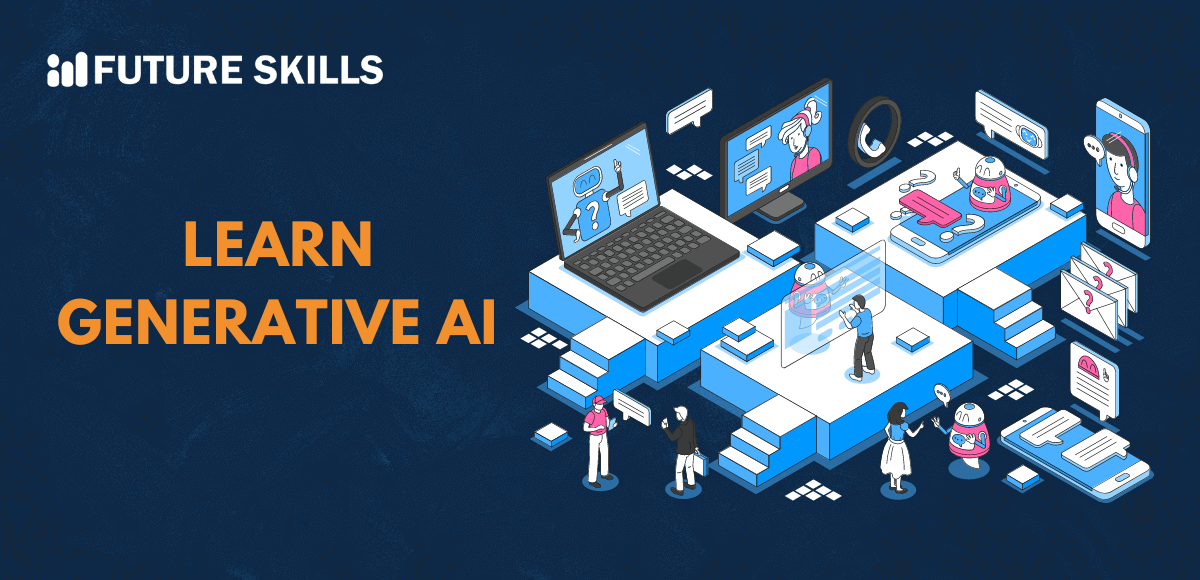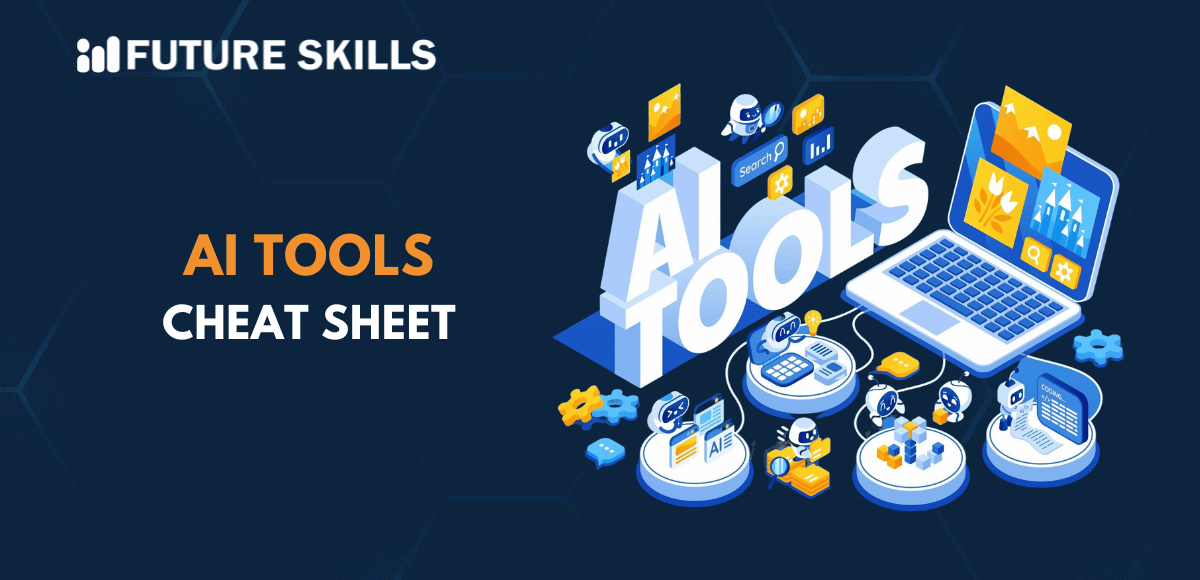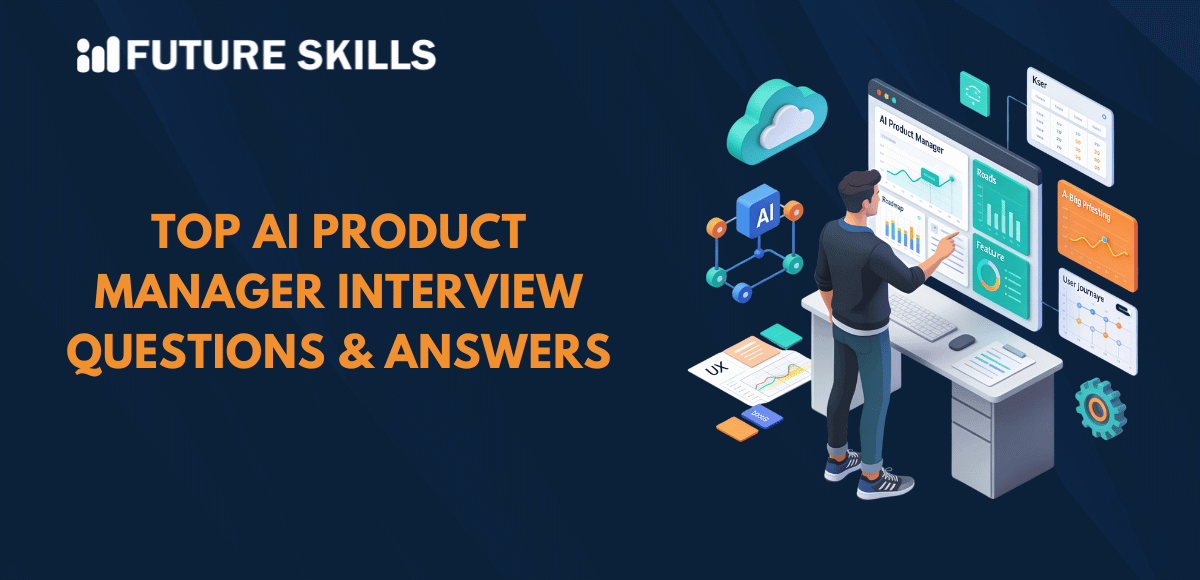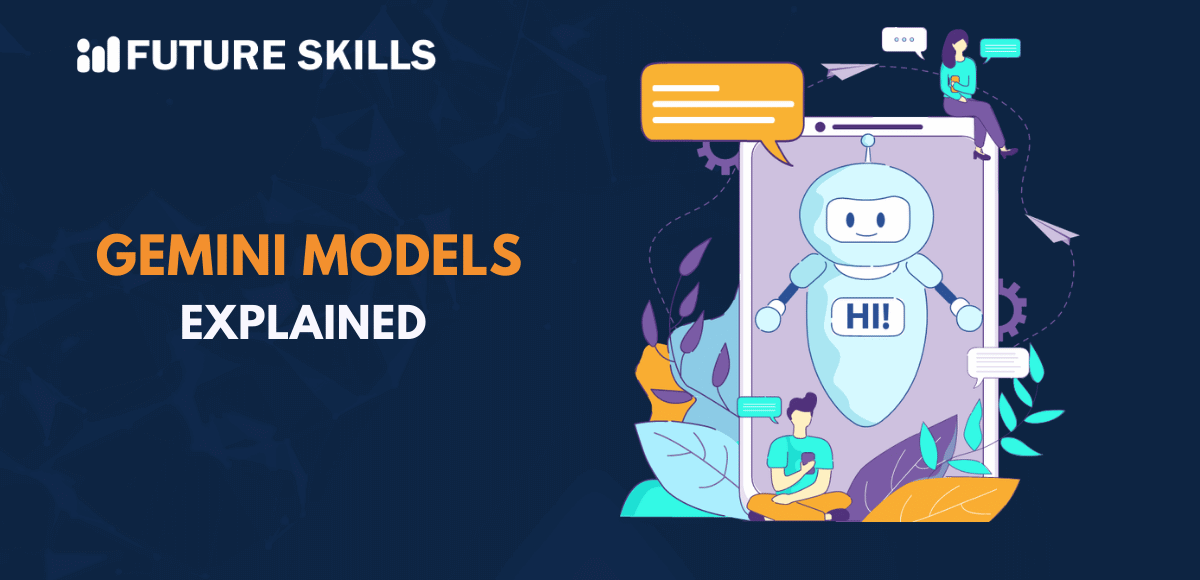Artificial intelligence has grabbed the attention of the whole world with its impressive performance in transformation of different industries. It has emerged as a powerful tool for innovation that has changed the approaches we follow for interactions with technology. One of the most notable subdomains in the continuously evolving domain of AI is generative AI. People want to learn generative AI for its unique ability to generate content and replicate human-like performance in different tasks.
Interestingly, generative AI can achieve autonomous execution of tasks without explicit programming. It has emerged as the most valuable technology for different tasks, such as generating content and creating new artwork. Let us find out how you can familiarize yourself with generative AI and learn it from scratch.
Embark on a transformative journey into AI, unlock career-boosting superpowers through our Certified AI Professional (CAIP)™ Certification program.
Fundamentals of Generative AI
Most people interested in learning AI would find that generative AI is the best point to begin their journey. Generative AI is a subdomain of artificial intelligence that focuses on generating content rather than just recognizing patterns in data. The unique specialty of generative AI is that it can generate data, images, text, artwork, music, and videos without explicitly pre-programming the generative AI systems. You can think of generative AI as having an AI artist, composer, or writer who can independently generate creative work.
With generative AI algorithms going through continuous improvements, it is reasonable to assume that the world would witness new use cases of generative AI. Generative AI models also offer the advantage of training on large datasets, including text, images, or other types of data, to generate new content that is almost similar to the training data. For example, generative AI is useful for different applications, such as image synthesis in computer vision, text generation in natural language processing, and other creative domains.
Enroll now in the AI for Business Course to understand the role and benefits of AI in business and the integration of AI in business.
Growth of Generative AI
Another important factor that comes to mind when you think of learning generative AI is the possibility of its growth. Before you embark on a generative AI learning path, it is important to find out how the technology is growing and whether it will grow in the future or not. You can expect the global generative AI market to surpass the value of $110 billion by 2030. Salesforce has reported that millennials and Gen Z users are actively leveraging generative AI to their advantage.
It is also important to know that the enthusiasm around generative AI extends beyond its adoption. Around 60% of generative AI users believe that they could achieve fluency in all its complexities. At the same time, the growing interest in a generative AI course also stems from the objectives behind its adoption.
Almost 75% of generative AI users leverage it for automation of work-related tasks, improving productivity, and streamlining processes. Most importantly, Gen Z users also trust generative AI as a vital tool for making crucial decisions. On top of that, the demand and use of generative AI continues to grow at an impressive pace. Therefore, generative AI skills can help you achieve significant benefits for your career.
Excited to understand the crucial requirements for developing responsible AI and the implications of privacy and security in AI, Enroll now in the Ethics of Artificial Intelligence (AI) Course.
Why Should You Learn Generative AI from Ground Zero?
The process of learning generative AI from scratch offers multiple benefits beyond developing a new skill. You can develop the skills that you can implement for a business as well as for your career path. It shows you how to start learning artificial intelligence alongside navigating through the tough challenges of familiarizing yourself with an innovative technology like AI. Here are some of the most notable reasons why learning generative AI from scratch can help you.
The best reason to learn about generative AI from scratch is the opportunity to develop strong foundations in mathematics. It can help you develop a better understanding of the working and performance of algorithms. Such skills can help you create the perfect stage to learn about complex algorithms, such as probabilistic models, GANs, and autoencoders.
The next crucial reason to look for generative AI resources to learn from scratch is the advantage of learning how to implement different types of algorithms. You can gain better insights into the workings of generative models, thereby enhancing your skills for developing efficient and optimized models.
Another notable reason to invest your efforts in learning generative AI from scratch is the continuous evolution of generative AI. When you start from scratch, you can develop the agility to learn about new innovations and advancements. It also helps you stay in control of your learning journey and ensures that you are ahead of the curve.
For such important reasons, to learn generative AI from scratch, you must follow an effective learning path. Learning about generative AI from ground zero will not only help you learn about the new technology but also help you build practical skills, boost personal growth, and open new avenues for career development. On top of it, skills in generative AI can also help enhance your decision-making abilities.
How Should You Learn Generative AI from Scratch?
The reasons to invest your time and efforts in learning generative AI are definitely impressive. However, you must follow a systematic process to develop your expertise in generative AI from scratch. It would be different from learning AI with the help of articles and blogs. You have to follow a continuous and iterative process that includes interrelated steps and promotes your practical skills in the field. Here are some of the most important steps that you must follow to build a comprehensive understanding of generative AI.
-
Begin with Machine Learning
The first thing you would need in a generative AI learning path is an in-depth understanding of machine learning fundamentals. You can start by learning about the fundamental concepts and techniques used for building machine learning algorithms.
Some of the important concepts that you should learn include supervised and unsupervised learning and the working of classification and regression models. On top of it, you must also understand the intricacies of training process of ML algorithms and testing data for machine learning. You can rely on online courses and textbooks on machine learning to enhance your knowledge of machine learning fundamentals.
-
Specialize in Python Programming
Generative AI might seem like a magic trick that lets you generate anything out of thin air. However, it takes some exclusive secrets to become a wizard, and the same applies to anyone who wants to master generative AI. The secrets behind generative AI also point to programming, and the best language used for generative AI is Python. As a matter of fact, anyone who wants to know how to start learning artificial intelligence must begin with Python.
Fluency in Python programming can help in the implementation of machine learning models and understanding generative AI. Therefore, you must understand the syntax and data structures of Python. Most importantly, you must also specialize in Python libraries, such as TensorFlow, NumPy, and Pandas, and their use in machine learning. The best way to enhance your Python expertise involves interactive coding alongside project-based learning to use Python in generative AI.
-
Dive into Concepts of Data Science and Deep Learning
The next step in your journey of learning generative AI would focus on concepts of data science and deep learning. Before you go for a generative AI course, you must familiarize yourself with data preprocessing, visualization techniques, and feature engineering, which can help you understand and manage complex datasets. Learners must also dive into the concepts of neural networks, recurrent neural networks, and convolutional neural networks.
You should also invest your efforts in learning about deep learning architectures, such as GNNs, transformers, and many others. It is also important to understand the use of neural networks and deep learning architectures in sequential data analysis, image generation, and natural language processing. You should also explore the role of sequential data analysis in development of generative AI models.
-
Find an Introduction to Generative AI
After strengthening your command over the fundamentals, you have to familiarize yourself with the basics of generative AI. You should use all the available generative AI resources to learn about its working mechanism and different applications. For example, you must explore the applications of generative AI in image generation, style transfer, text-to-image synthesis, and other tasks.
On top of it, you should also learn about the principles that define the working of Variational Autoencoders or VAEs and Generative Adversarial Networks or GANs alongside other popular generative AI models. The best resources to help you familiarize yourself with these concepts include online lectures and research papers. On top of it, you can also choose specialized online courses that can help you develop an in-depth understanding of the capabilities and implications of generative AI.
-
Practical Training Always Helps
No matter how many theories you learn about generative AI, you will ultimately need practical training to put your skills to use. The best approach to learning AI involves using hands-on projects and challenges to specialize in the implementation of your skills. For example, you can learn how to develop generative AI models for generative art, producing music, or synthesizing images.
You should also try experiments with existing datasets alongside tweaking generative AI models to interpret their limitations and behavior. Aspiring learners can rely on platforms such as Kaggle, GitHub, and ProjectPro alongside other open-source repositories to access different datasets and project ideas. You can use the resources to learn how to implement generative AI, thereby honing your skills in the process.
-
Networking and Collaboration with the Community
One of the most integral aspects of the process of developing your expertise in generative AI revolves around the generative AI community. You can learn generative AI from a different perspective by joining online forums, participating in discussion groups, and ensuring active engagement with the generative AI community.
The community can help you find guidance from peers, engage in collaborations on different projects, and share valuable insights. Community participation can help you improve your learning experience through collective knowledge. At the same time, you can stay updated with the latest trends, advancements, and techniques used in generative AI. As a result, you can develop the abilities required to find your way through the complex avenues of generative AI.
-
Professional Courses and Certifications
Another crucial recommendation for anyone who wants to find out how to start learning artificial intelligence for generative AI applications would be to focus on professional courses and certifications. It is important to choose professional training courses delivered by expert instructors with years of experience. The best course of action would be to choose a generative AI course from a reputed platform.
On top of it, you must also invest efforts in finding the right generative AI certification for your career. Some of the essential traits that you should look for in a generative AI certification point for comprehensive coverage of generative AI topics are accreditation and flexible learning. The right certification can prove your skills and knowledge in generative AI that would serve as invaluable additions to your resume.
Build ChatGPT skills and take the first step to becoming superhuman with our free ChatGPT and AI fundamental course
Where Will You Find Resources to Learn Generative AI?
The search for generative AI resources may take you to different platforms. Interestingly, you can find promising solutions to build your expertise in generative AI from scratch on top platforms. Google and Microsoft are the most trusted destinations for familiarizing themselves with generative AI. The tech giants provide dedicated learning paths to help you learn about generative AI from scratch. You can use credible resources to build your expertise in generative AI.
Final Words
The outline of the best practices to learn generative AI revolves around emptying your mind before you start. You have to start from scratch to develop the essential skills that make you a generative AI expert. ChatGPT and other generative AI tools have created a misconception. People believe that anyone who uses the tools can know what generative AI is capable of.
However, you must follow a systematic process to build your skills in generative AI and become an expert. For example, you can notice how Python programming skills would help you create effective machine-learning models for generative AI. Start exploring the world of generative AI and identify the best resources to build your expertise in generative AI now.






